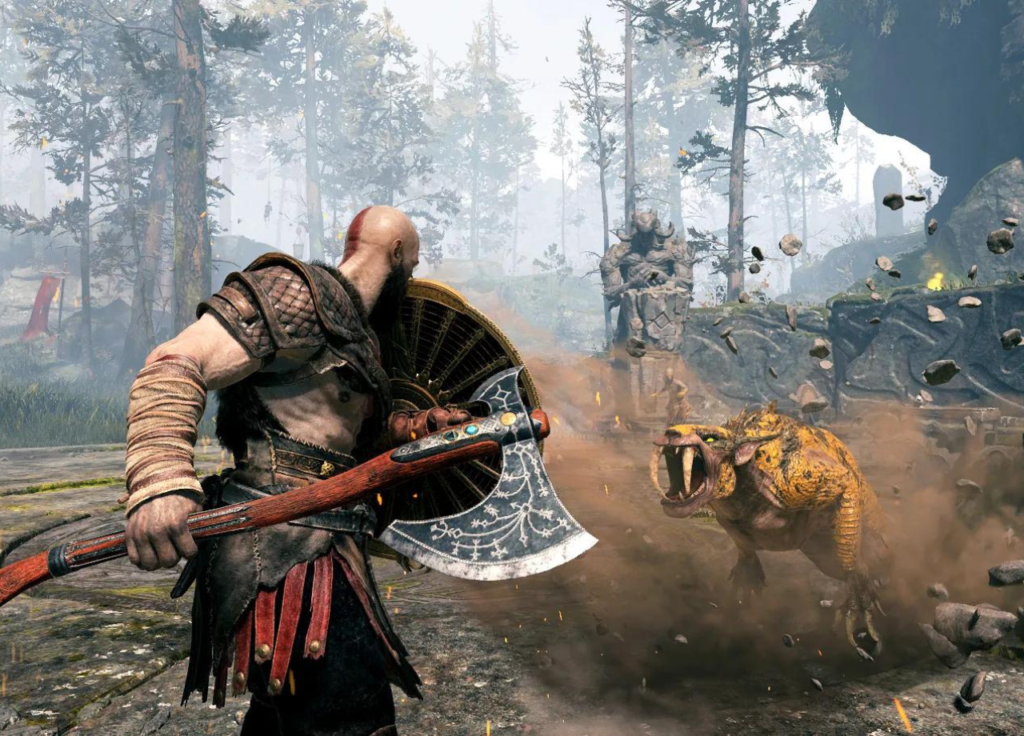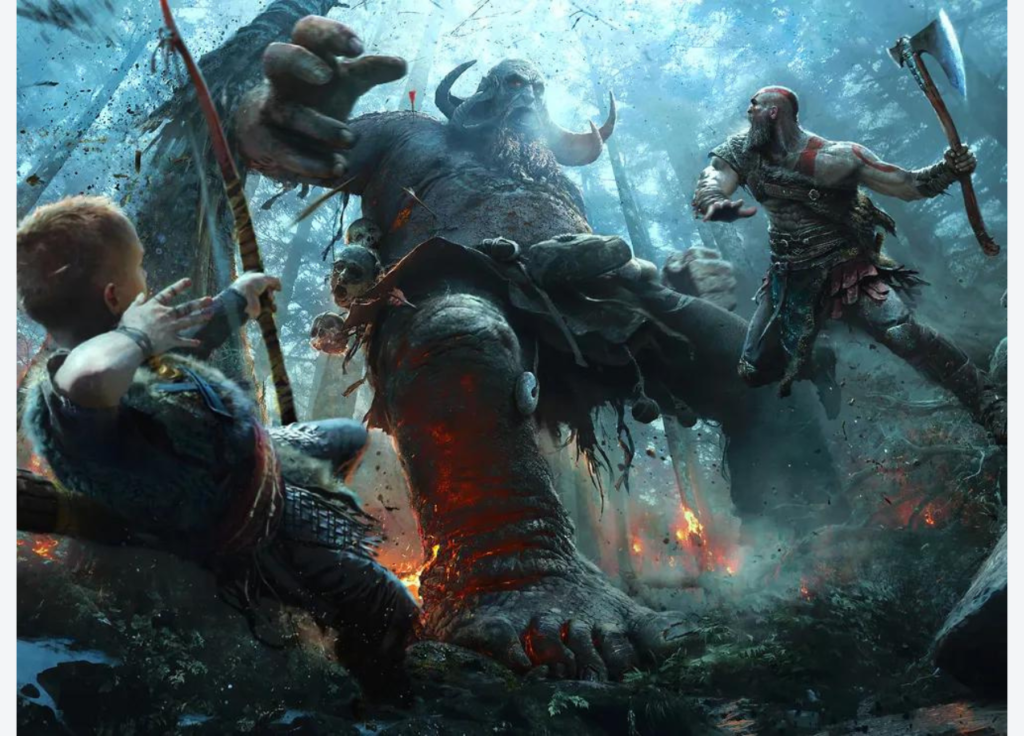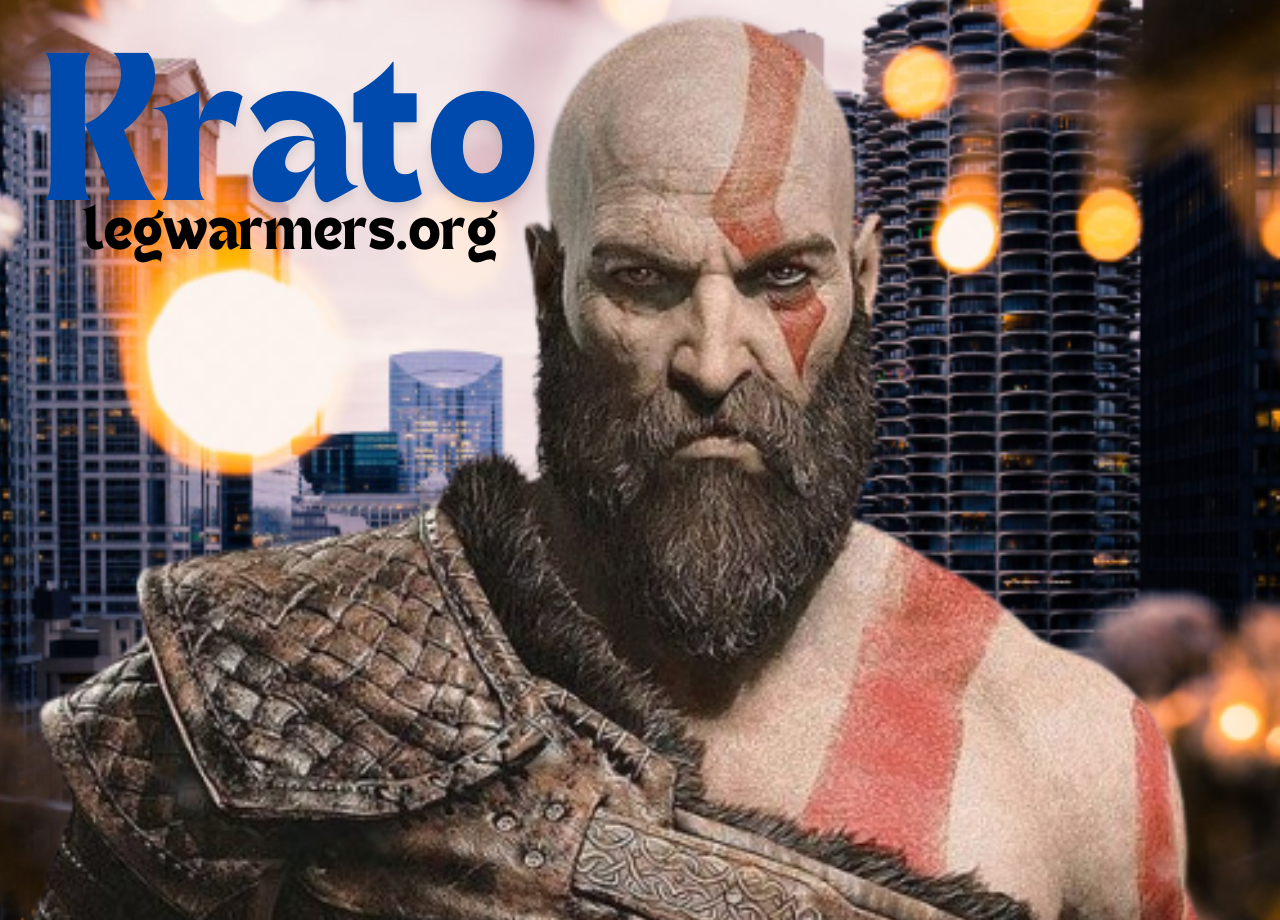Introduction to Krato
The word “Krato” carries profound historical, cultural, and symbolic meaning. But what exactly is Krato? Where did it originate, and how has it permeated various aspects of modern culture? This article delves into the essence of Krato, exploring its origins, meanings, and lasting influence across literature, video games, and beyond.
Table of Contents
The Meaning Behind the Name ‘Krato’
Etymology and cultural importance
The name “Krato” finds its roots in ancient civilizations, particularly in Greek mythology, where “Kratos” signifies “power” or “strength.” Throughout history, Krato has been synonymous with figures of immense authority, symbolizing control, leadership, and resilience. This association with strength has allowed Krato to transcend its original meaning, making it relevant in various cultural contexts.
Modern-Day Usage
Today, Krato represents more than just a name—it’s a universal symbol of power and perseverance. Whether in popular media, social platforms, or gaming, Krato has come to embody leadership, the ability to conquer obstacles, and an unyielding will. Its use across digital and entertainment mediums has cemented its role as a metaphor for strength and triumph.
A Glimpse into Krato’s History
Ancient Roots of Krato
The concept of Krato is deeply embedded in ancient history. In various mythologies, Krato symbolized figures of immense power and influence, often representing warriors and leaders who commanded respect and authority. Its association with strength has persisted over time, shaping how it is viewed in modern media.
Evolution Over Time
From its earliest appearances in ancient texts, Krato has evolved, expanding beyond mythological boundaries. This adaptability has allowed it to permeate different forms of storytelling, from literature to cinema, video games, and digital culture. The transformation of Krato highlights its enduring appeal and versatility in symbolizing power.
Krato in Different Cultures

Krato in Greek Mythology
In ancient Greek mythology, Kratos embodied the strength and authority of the gods. Often depicted as a loyal enforcer, Kratos upheld the will of the gods, symbolizing unwavering power. This mythological portrayal has had a lasting impact, influencing how modern audiences perceive strength, both in historical texts and contemporary adaptations.
Krato in Popular Media
Krato’s influence has reached far beyond mythology, seeping into modern pop culture. From literature to video games, the character and concept of Krato have been adapted to fit modern narratives, often representing heroes who face significant challenges, demonstrate leadership, and ultimately achieve victory.
Symbolism of Krato
Power and Authority
Krato has long been a symbol of power and control. Its representation across cultures and media typically highlights characters who possess great influence over their environment and those around them. This emphasis on authority underscores the universal appeal of Krato as a figure of dominance and command.
Leadership and Strategic Control
More than mere physical power, Krato symbolizes strategic leadership and intellectual prowess. Characters associated with Krato often demonstrate tactical thinking, guiding others through adversity with wisdom and determination. This nuanced depiction of leadership aligns Krato with the qualities of a successful leader.
Krato’s Modern-Day Relevance
Krato in Literature
Throughout the years, Krato has remained a central figure in literature. From ancient myths to modern novels, Krato is often used to depict characters of immense influence, reflecting humanity’s quest for power and control. Its portrayal in literature continues to evolve, allowing for fresh interpretations of strength and resilience.
Krato in Movies and Video Games
In the world of movies and video games, Krato stands as an iconic figure. The character’s narrative often revolves around overcoming adversity, embodying themes of resilience, determination, and redemption. This portrayal has captivated audiences, particularly in video games where Krato’s journey mirrors that of the player’s own trials and triumphs.
Krato in Digital Culture

Social Media and Memes
Krato has become a staple in digital culture, particularly on social media platforms. Its representation in memes and viral content taps into its symbolism of power, making it a popular reference for users who wish to convey authority, victory, or dominance in a humorous or relatable way.
Influence on Internet Communities
The concept of Krato has also found a place in online gaming and discussion forums. It’s often invoked in contexts related to victory or strength, solidifying its role as a digital icon of dominance and success. This continued relevance ensures that Krato remains a significant figure in modern internet culture.
Krato’s Influence on the Gaming Industry

Kratos in ‘God of War’
One of the most notable modern representations of Krato can be found in the “God of War” video game series. The character Kratos, inspired by ancient traditions, epitomizes themes of strength, vengeance, and personal growth. His journey has left a lasting impact on gaming, cementing Kratos as one of the most recognizable characters in the industry.
Character Arc and Development
Kratos’s transformation from a rage-driven warrior to a more introspective and multifaceted character in God of War highlights the complexity of his story. This development not only adds emotional richness but also resonates with audiences who appreciate stories of redemption and personal struggle.
Why Krato Appeals to Audiences
Psychological Depth
One reason for Krato’s enduring popularity is the psychological complexity of characters associated with the name. These figures often grapple with profound moral dilemmas and emotional conflicts, making them relatable to audiences who connect with their struggles and growth.
Cultural Impact
Krato’s impact on culture extends beyond its individual appearances in media. As a symbol of power and leadership, Krato has shaped how stories about strength, authority, and morality are told across different genres. Its influence can be seen in modern storytelling, from epic fantasy to gritty dramas.
Understanding Krato’s Character Traits
Strengths and vulnerabilities
Characters linked to Krato are often portrayed as possessing immense physical and mental strength. However, their complexity is revealed through their vulnerabilities—be it their susceptibility to betrayal, hubris, or internal conflict. These traits make Krato-based characters more human and relatable.
Emotional Complexity
Krato’s emotional depth adds to the richness of the narratives it influences. The internal struggles, conflicts, and desires that drive these characters offer layers of complexity that resonate deeply with audiences. This emotional aspect has been key to Krato’s enduring appeal.
The Impact of Krato on Storytelling
Narrative Techniques
Krato has influenced the way modern stories are structured. By emphasizing character development and emotional depth, narratives surrounding Krato often offer compelling arcs that engage audiences on multiple levels. These techniques have paved the way for storytelling that is both entertaining and thought-provoking.
Moral Lessons and Themes
At its core, Krato-related narratives frequently explore themes of power, redemption, and morality. These stories invite reflection on the consequences of one’s actions, the nature of leadership, and the often-blurred line between right and wrong. These ideas hold significant relevance in the complexities of today’s world.
Lessons from Krato in Real Life
Courage and perseverance
Krato-inspired stories offer powerful lessons in courage and resilience. Characters’ journeys, marked by hardship and determination, mirror real-life challenges, encouraging individuals to persevere in the face of obstacles and adversity.
Moral Reflection
The ethical challenges encountered by Krato characters prompt viewers to consider their own beliefs and choices. These stories remind us that power comes with responsibility and that our choices have lasting consequences.
Controversies Surrounding Krato
Representation in Media
Despite Krato’s popularity, it has not escaped criticism. Some debates focus on how Krato is portrayed in media, particularly regarding themes of violence, gender, and cultural stereotypes. These discussions have sparked conversations about the need for more nuanced and inclusive representations.
Gender and Race Dynamics
Krato’s depiction has also ignited debates surrounding gender and racial perspectives. Critics argue that certain portrayals reinforce outdated stereotypes, calling for more thoughtful and diverse representations in future adaptations of the character.
The Future of Krato in Popular Culture
Upcoming Developments
Krato’s future in media appears bright, with numerous projects in development that promise to explore new aspects of the character and its symbolic significance. Fans can anticipate fresh adaptations that will continue to redefine Krato for new audiences.
Predictions and Expectations
Speculation about Krato’s future abounds, with many predicting continued evolution in its portrayal. Whether through new video games, films, or literary works, Krato’s enduring legacy ensures it will remain relevant for generations to come.
Conclusion
Krato, with its rich historical roots and deep cultural significance, has grown into a powerful symbol in modern media. In literature, film, or video games, Krato represents power, perseverance, and the intricate aspects of human nature. As we continue to engage with its many facets, Krato stands as a reminder of the enduring appeal of stories about power, morality, and redemption.
FAQs About Krato
What does Krato symbolize?
Krato symbolizes power, strength, and authority, originating from ancient languages and cultures where it was associated with influential figures.
How is Krato portrayed in modern media?
In modern media, Krato is depicted as a symbol of resilience and leadership, often featured in literature, films, and video games as a character who faces significant challenges.
What impact has Krato had on popular culture?
Krato has left a lasting mark on popular culture, influencing storytelling, character development, and themes related to power and morality.
Why is Krato sometimes controversial?
Krato faces criticism for its portrayal in media, particularly regarding issues related to violence, gender roles, and cultural stereotypes.
What does the future hold for Krato?
Krato’s future in popular culture is promising with new adaptations and projects on the horizon that will explore different
You Can See Latest Updates On: Leg Warmers



